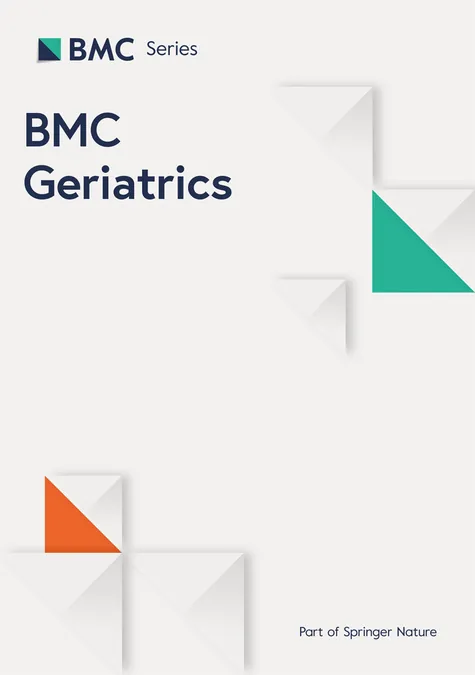
Unmasking the Hidden Crisis: How Swallowing Difficulties Can Lead to Severe Dehydration in Older Adults
2024-10-26
Author: Siti
Introduction
The often-overlooked intersection of oropharyngeal dysphagia (difficulty swallowing) and dehydration in older adults is a growing concern for healthcare professionals. As our population ages, understanding the implications of these two conditions becomes crucial, particularly since dehydration poses significant health risks. This article reveals alarming findings based on a recent study conducted at a geriatric outpatient clinic, demonstrating the strong link between dysphagia and dehydration in older adults.
Study Background
Historically, the relationship between dysphagia and dehydration has not been extensively researched, sparking a need for more focused studies within this demographic. The latest study aimed to analyze the frequency of these two conditions in older patients, as well as assess the risk factors contributing to dysphagia.
Methodology
Conducted as a cross-sectional study, researchers evaluated 1,345 older adults at a geriatric outpatient clinic. The criteria for dehydration were defined using plasma osmolarity (Posm), while dysphagia was assessed employing the Eating Assessment Tool (EAT-10). Participants were assessed for various health indicators, including comorbidities and nutritional status.
Key Findings
Of the participants studied, the average age was 78 years, with women constituting 71% of the cohort. Findings revealed that: - Dysphagia was present in 27% of the participants. - Overt dehydration (Posm > 300 mmol/L) was notably higher in those with dysphagia (29% vs. 21% without dysphagia). - Dysphagia correlated with increased use of medications, higher dependency in daily activities, and signs of geriatric depression. In striking contrast, the study found that the prevalence of dehydration significantly escalated among those with dysphagia, indicating a concerning trend among this vulnerable population.
Broader Implications of Dehydration
Dehydration may adversely affect older adults far more than their younger counterparts, contributing to increased morbidity and mortality rates. Furthermore, the impact on cognitive performance cannot be underestimated; even a loss of 2% in body weight due to dehydration can impair cognitive functions such as memory and attention. Alarmingly, dehydration impacts one-third of older adults, especially those in care settings.
Additionally, chronically dehydrated individuals may face a vicious cycle where reduced fluid intake exacerbates their dysphagia, leading to further complications such as malnutrition and aspiration pneumonia.
The Role of Oropharyngeal Dysphagia
Dysphagia is a serious condition affecting a notable portion of the elderly (up to 51% in nursing home residents). It poses several risks, including malnutrition and increased healthcare costs, and is now recognized as a geriatric syndrome by the European Society. Those with dysphagia are particularly prone to complications such as pneumonia due to food aspiration.
The study highlighted the unaddressed prevalence of dehydration in patients with dysphagia and emphasizes that both conditions should be closely monitored in clinical settings. Notably, while dysphagia may exacerbate dehydration, other factors like cognitive impairment and general health decline complicate the clinical picture.
Risk Factors Identified
Some key contributors to dehydration in older adults with swallowing difficulties include: - Advanced age - Comorbid conditions like diabetes and chronic kidney disease - Dependency on medications, particularly those with anticholinergic properties - Reduced mobility leading to inadequate fluid intake - Linkages to depression further complicate the scenario, reducing motivation to consume adequate fluids and nutrition.
Conclusion and Future Directions
This investigation underlines the critical need for integrative care strategies to address both dysphagia and dehydration among older adults. It highlights that simultaneously correcting malnutrition and swallowing difficulties could lead to improved hydration status more effectively than targeting either issue in isolation.
Future research, especially longitudinal studies, is essential to further elucidate the causal relationships between dysphagia, dehydration, and overall health outcomes in geriatric populations. Only through comprehensive studies can we develop effective interventions to mitigate these intertwining issues, ultimately improving the quality of life for older adults facing these challenges.
Call to Action
Healthcare providers must remain vigilant in monitoring swallowing difficulties and hydration status in their older patients. By prioritizing awareness and education regarding these conditions, we can help prevent serious complications and promote healthier aging.





 Brasil (PT)
Brasil (PT)
 Canada (EN)
Canada (EN)
 Chile (ES)
Chile (ES)
 España (ES)
España (ES)
 France (FR)
France (FR)
 Hong Kong (EN)
Hong Kong (EN)
 Italia (IT)
Italia (IT)
 日本 (JA)
日本 (JA)
 Magyarország (HU)
Magyarország (HU)
 Norge (NO)
Norge (NO)
 Polska (PL)
Polska (PL)
 Schweiz (DE)
Schweiz (DE)
 Singapore (EN)
Singapore (EN)
 Sverige (SV)
Sverige (SV)
 Suomi (FI)
Suomi (FI)
 Türkiye (TR)
Türkiye (TR)